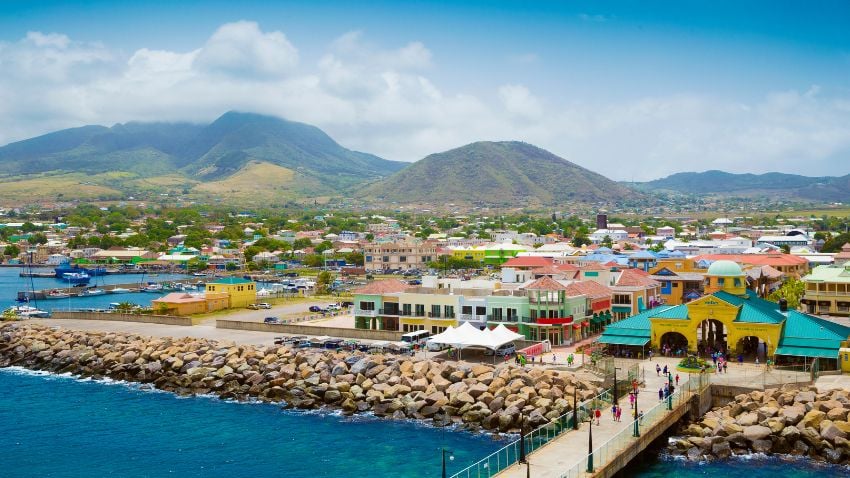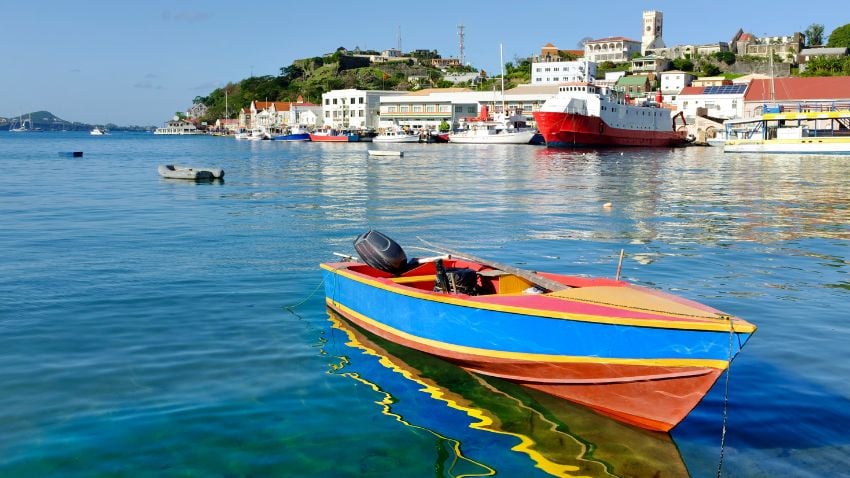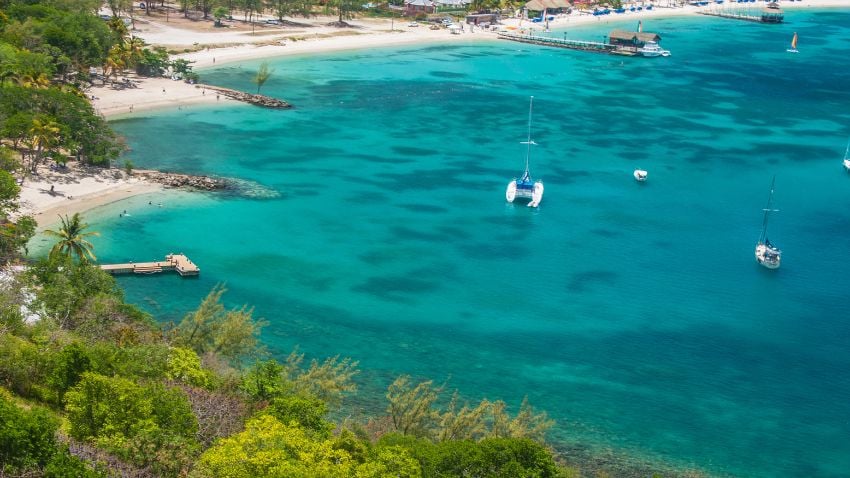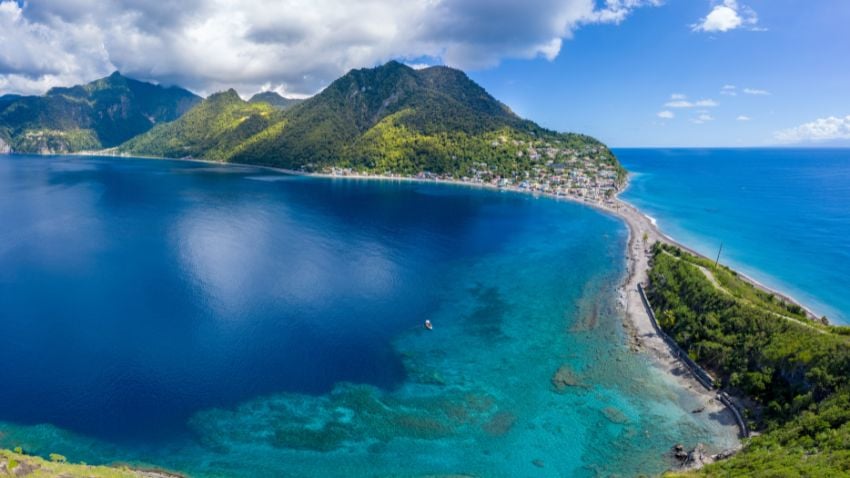Top Things To Do In Panama In 2026
Panama’s geographic size is modest, but its global relevance is not. The country connects two oceans and two continents, operates on a dollarized...

4 min read
Are you thinking about getting a second passport in the Caribbean? If you're considering a Citizenship by Investment (CBI) program in these island nations, there have been some recent regulatory changes you need to know about. Beginning June 30th, 2024, big changes are in store. Four out of the five Caribbean countries that offer CBI programs have signed an agreement to collaborate and make their programs more similar.
Unfortunately, in this case, “more similar” means higher investment thresholds and increased regulations. This highlights once again while I am always telling my clients to act swiftly on their plans because you never know when these programs will change.
In this article, we will explain what these changes will mean for expats looking to acquire a CBI in the Caribbean.
If you want to go the extra mile and get the most actionable information to get a second passport, grab your special report, Plan-B Residencies & Instant Citizenships Report. If you want not only to minimize your tax bill but also secure your new life abroad, claim it now.

St Georges Harbor, Grenada
The Memorandum of Understanding (MoU), signed by Antigua and Barbuda, Dominica, Grenada, and Saint Kitts and Nevis, establishes a collective commitment to maintain the minimum investment requirement for citizenship at $200,000 USD. This follows St. Kitts overhauling its own program last year and raising the investment minimum for that program to $250,000 USD.
Grenada's Prime Minister, Dickon Mitchell, recently announced the rebranding of the Grenada Citizenship by Investment Unit (CIU) to the Investment Migration Agency Grenada. He also revealed that he had been engaged in intensive discussions with his counterparts in other Eastern Caribbean States (OECS) countries for the past six weeks. These discussions culminated in the signing of a Memorandum of Understanding (MoU).
The decision to establish a minimum price came from pressure from the EU, which justified it to avoid discrediting the Caribbean CBI. In reality, it's going to make these programs less attractive by making the process more cumbersome for potential applicants. This is in no way good news for the expat world, which is why it’s even more essential to act now if you are looking to acquire one of these CBIs.
So, what does this mean for expats looking to invest in these countries to get citizenship? Here are the key points:
Investment Cost: All four countries have set a standard investment amount of $200,000 USD. This means that no matter which country you choose, the minimum amount you'll need to invest to qualify for citizenship is the same. Plus, any changes to this amount in the future need a thumbs-up from all four countries;
Sharing Info: These countries will share information on applicants to ensure everything is legal. They're setting up a digital system in Barbados to facilitate this sharing and are also committed to being open about how the money from these programs is used;
Rules and Regulations: They plan to set up a new group to make sure everything runs smoothly and follows international best practices.
Keeping an Eye on Things: Even after someone gets citizenship BY investment, there will be checks to ensure everything remains on the up and up;
Marketing Dos and Don'ts: There will be rules regarding how these citizenship programs can be marketed. For instance, they're saying no to using pictures of passports or promising visa-free travel in ads.

Saint Lucia is not joining the big agreement
Saint Lucia decided to sit this round out, not joining the big agreement with the other Caribbean countries. The Prime Minister of Saint Lucia, Philip J Pierre, chose not to sign on, making Saint Lucia the only one of the five Caribbean citizenship-by-investment spots not joining the party. Although there is speculation about this matter, there is nothing confirming why St Lucia did not enter into this agreement. Let's wait for more news.
Several factors might be driving this push for standardization:
Addressing EU Scrutiny: The EU has previously expressed concerns about CBIs, particularly regarding security risks. By standardizing regulations, increasing transparency, and potentially enhancing due diligence procedures, the Caribbean countries might aim to appease the EU and avoid stricter regulations or even the removal of visa-free access for their citizens;
Maintaining the value of the program: In the minds of bureaucrats, competition is a bad thing, and they think that non-regulation could potentially devalue the CBIs themselves. So, from the moment these new rules come into force, forget about any discount you could have at the CBI in one of these countries;
Strengthening the Brand: An approach with common standards could project a stronger, more reputable image for Caribbean CBIs as a whole in the minds of the bureaucrats.

Shirley Heights, Antigua and Barbuda
I've come to see that raising the minimum investment for Citizenship by Investment Programs (CBIs) isn't really an effective way to keep out criminal applicants, especially considering the strict due diligence already in place in the Caribbean. Such a move would probably just shrink the pool of legitimate applicants without really boosting security or compliance. It also seems to overlook the competitive landscape of global CBIs since investors could simply look for more affordable options elsewhere.
The EU's push to increase investment thresholds might be an attempt to make CBIs less attractive, which doesn't directly tackle the security concerns they claim to have. Rather than imposing higher costs, it would make more sense for the EU to work with Caribbean nations to improve due diligence processes further, taking advantage of their more advanced investigative resources. The EU's strategy appears more punitive than practical to me, bypassing more effective ways to address concerns with CBIs. This approach risks undermining the programs' effectiveness and appeal without actually enhancing security.

Scotts Head, Dominica
For expats dreaming of Caribbean citizenship, the clock is ticking. Caribbean nations are banding together to standardize their citizenship-by-investment programs, setting a fixed minimum investment price. With prices potentially on the rise, my advice is to act fast if you're considering this path to ensure you lock in your citizenship before costs climb.
This new agreement between Caribbean countries is a significant change to their citizenship programs. However, Saint Lucia's decision to opt-out adds an element of uncertainty about how this collective effort will influence the broader landscape of Caribbean CBIs and whether it will lead to a more divided system with different investment tiers.
The future impact of this collaboration remains to be seen, but for potential investors, the message is clear: now's the time to make your move.
If you want the best intel from the expat world, including profitable offshore opportunities, little-known tax-saving strategies, and hard-won insights on immigration, passports, and Plan-B residencies, all delivered to your inbox every single week, then join our daily correspondence, EMS Pulse®. Currently enjoyed by over 84,000 expats and expat-hopefuls worldwide. Fill in the form below to join our newsletter free:

Written by Mikkel Thorup
Mikkel Thorup is the world’s most sought-after expat consultant. He focuses on helping high-net-worth private clients to legally mitigate tax liabilities, obtain a second residency and citizenship, and assemble a portfolio of foreign investments including international real estate, timber plantations, agricultural land and other hard-money tangible assets. Mikkel is the Founder and CEO at Expat Money®, a private consulting firm started in 2017. He hosts the popular weekly podcast, the Expat Money Show, and wrote the definitive #1-Best Selling book Expat Secrets - How To Pay Zero Taxes, Live Overseas And Make Giant Piles Of Money, and his second book: Expats Guide On Moving To Mexico.

Panama’s geographic size is modest, but its global relevance is not. The country connects two oceans and two continents, operates on a dollarized...

Honduras’ newly elected president, Nasry Asfura of the conservative National Party, was sworn in on January 27, 2026. The election, held on November...

For a growing number of Americans, cost-of-living math no longer works. Housing feels harder to reach, everyday costs keep climbing, and long-term...